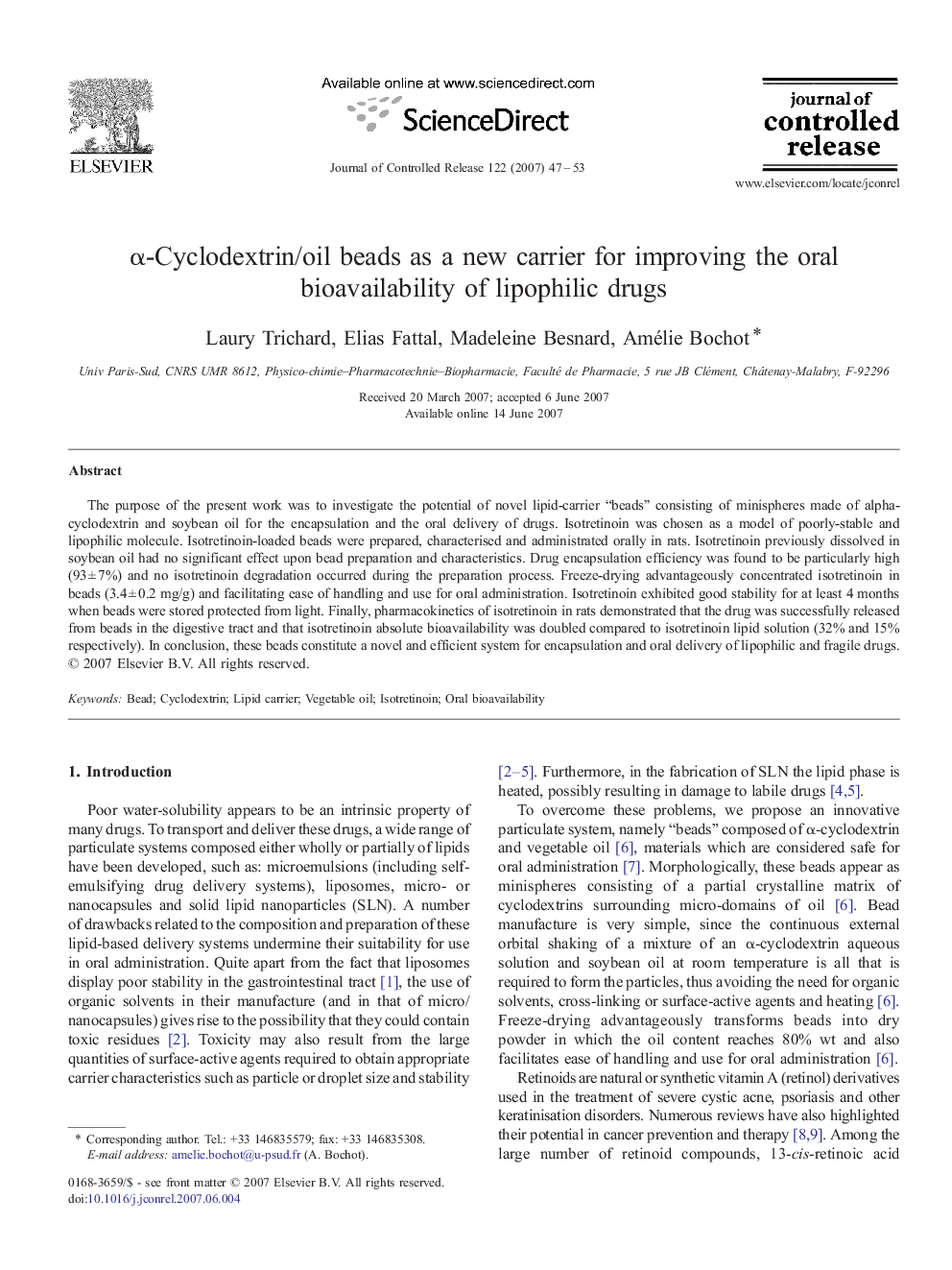| Article ID | Journal | Published Year | Pages | File Type |
|---|---|---|---|---|
| 1427179 | Journal of Controlled Release | 2007 | 7 Pages |
The purpose of the present work was to investigate the potential of novel lipid-carrier “beads” consisting of minispheres made of alpha-cyclodextrin and soybean oil for the encapsulation and the oral delivery of drugs. Isotretinoin was chosen as a model of poorly-stable and lipophilic molecule. Isotretinoin-loaded beads were prepared, characterised and administrated orally in rats. Isotretinoin previously dissolved in soybean oil had no significant effect upon bead preparation and characteristics. Drug encapsulation efficiency was found to be particularly high (93 ± 7%) and no isotretinoin degradation occurred during the preparation process. Freeze-drying advantageously concentrated isotretinoin in beads (3.4 ± 0.2 mg/g) and facilitating ease of handling and use for oral administration. Isotretinoin exhibited good stability for at least 4 months when beads were stored protected from light. Finally, pharmacokinetics of isotretinoin in rats demonstrated that the drug was successfully released from beads in the digestive tract and that isotretinoin absolute bioavailability was doubled compared to isotretinoin lipid solution (32% and 15% respectively). In conclusion, these beads constitute a novel and efficient system for encapsulation and oral delivery of lipophilic and fragile drugs.
